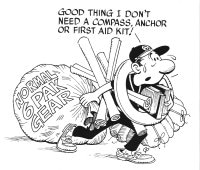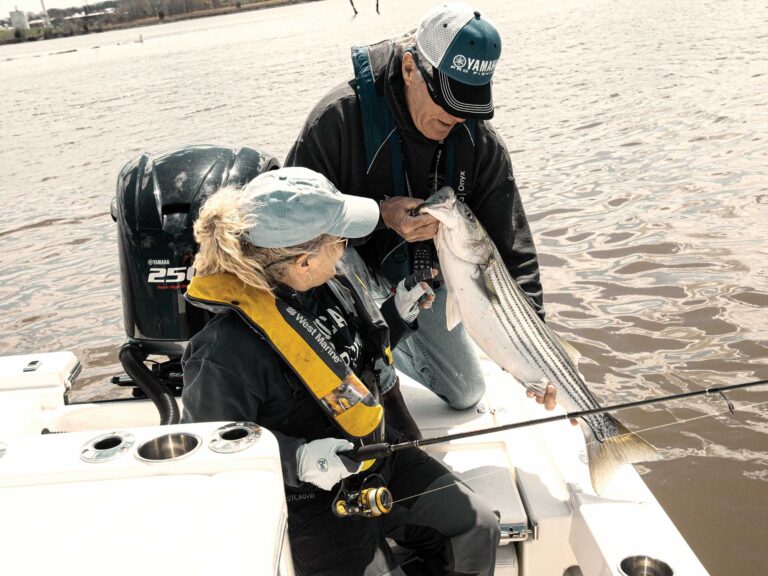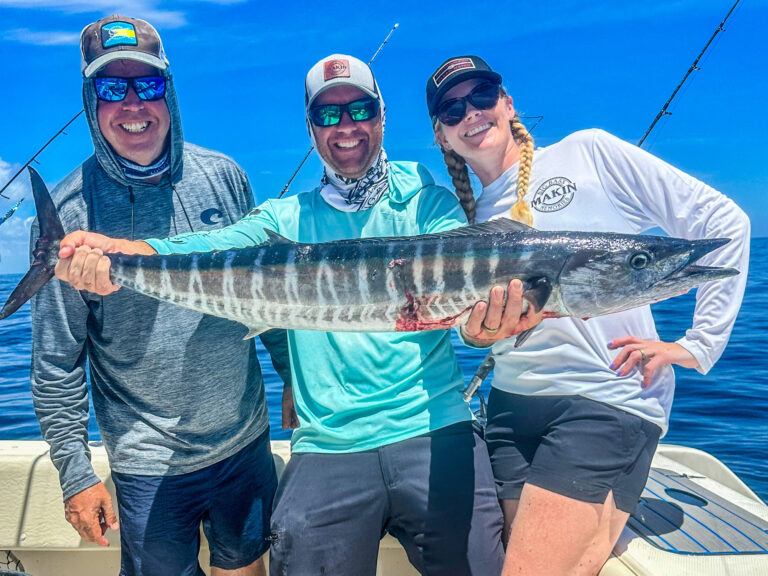
Passengers expect their charter boat captains to know the rules of the road, to be sober, and to equip their vessels with safety gear. But must the regulations require the good captain’s vessel also be a “public library?”
That’s the way that Captain Bob Arnold, executive director of Sea School, characterizes parts of the new USCG regulations in the Code of Federal Regulations (CFR) for Operators of Uninspected Passenger Vessels (OUPV), popularly known as ‘6-pack’ captains. USCG regulations will require 6-pack vessels to carry onboard printed copies of the lengthy Navigational Rules of the Road, up to date charts and publications for the intended voyage, appropriate portions of the “Coast Pilot” publication, the “Light List,” plus Tide and Current tables.
“It would be okay if 6-pack vessels were the size of a public library but, typically, these are charter boats and charter boats are more likely to be open cockpit fishing skiffs with very limited room,” said Arnold. Just the Navigational Rules of the Road, downloaded and printed from the Coast Guard’s web site, he noted, runs to more than 220 pages. “This is a lot of paper for a little boat to carry and keep dry,” said Arnold.
Sea School, the nation’s largest private maritime school, is informing its graduates, many thousands since 1977, that they can download the Navigational Rules of the Road and other required publications from various internet links provided at www.apcainfo.org, the website of The American Professional Captain’s Association.
The APCA site also lists all of the required equipment for Uninspected Passenger Vessels. In addition to the NavRules and other publications, equipment required on the vessel includes the captain’s original license, proof of drug testing compliance, emergency procedures, appropriate charts, personal flotation devices, fire extinguishers, and a proper sound-producing device.
No Compass Necessary
“Interestingly, the regulations don’t require the vessel to carry basic items like a compass, anchor and anchor line, paddle, and first aid kit,” said Arnold. “This leads one to wonder how you use a chart if you don’t know which way is north.”
Vessels longer than 26 feet have additional requirements including signs warning occupants about the improper disposal of oil and garbage. Garbage Placards and Oil Placards, as they are called, are sold in many boating supply stores. Vessels 40 feet or longer must also have a written Waste Management Plan and the person in charge is responsible for making sure that anybody who handles garbage disposes of it properly. Sound producing devices (whistles, horns, sirens) must be capable of a 4-second blast audible for 1/2 mile. Boats 40 feet or longer are also required to have a bell.
Sea School, headquartered in St. Petersburg, Fla., offers more than 20 approved courses and upgrades for U.S. Coast Guard Commercial Captain licenses in almost 200 locations from New England to Texas plus Puerto Rico and the Virgin Islands. Licenses are required for boat operators engaged in dive charters, offshore or inland fishing, ecology tours, parasailing, airboat tours and other pursuits with paying customers.
For more information and the location and schedule of courses, individuals interested in securing a license may contact Sea School at 1-800-237-8663 or go to www.seaschool.com.









